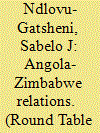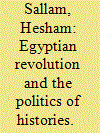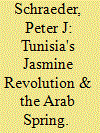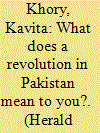| Srl | Item |
| 1 |
ID:
101589


|
|
|
|
|
| Publication |
2010.
|
| Summary/Abstract |
The common approach to the study of foreign policies of Southern African Development Community (SADC) states is to locate them within the context of 'brother presidents' and 'sister liberation movements'. There is emphasis on liberation war camaraderie as a key variable. However, Angola-Zimbabwe (read as MPLA-ZANU-PF and MPLA-MDC) relations have no noticeable strong liberation war-time ties. The relations are traceable to the post-1980 period when the Zimbabwe African National Union-Patriotic Front (ZANU-PF) pursued a deliberate policy of integrating itself within the SADC region and this coincided with the Popular Movement for the Liberation of Angola's (MPLA) long-time desire to isolate its internal enemies of the National Front for the Liberation of Angola and the National Union for the Total Independence of Angola. What is also noticeable is the opacity and ambiguities in Angola-Zimbabwe relations, which have provoked growth of speculation and suspicion. The only time Angola and Zimbabwe openly collaborated was in their intervention in the Democratic Republic of Congo war in 1998 under the auspices of the SADC in general and the SADC Organ on Politics, Defence and Security in particular. However, two recent developments-the state visit to Luanda by the Prime Minister of Zimbabwe and the leader of the Movement for Democratic Change (MDC-T) Morgan Tsvangirai in October 2009, and the announcement by ZANU-PF of the China-Sonangol $8bn investment deal in November 2009-have provoked fresh interest in understanding Angola-Zimbabwe relations in the context of a regional initiative to resolve the Zimbabwe crisis. Although Angola is visible as a member of the SADC in the search for a solution to the Zimbabwe crisis, it has not openly expressed its foreign policy towards Zimbabwe. Unlike Botswana under Ian Khama and Zambia under the late Levy Mwanawasa, which openly criticised President Robert Mugabe and ZANU-PF over governance and its human rights record, Angola has remained quiet, making it hard to know its exact position vis-agrave-vis initiatives towards resolution of the Zimbabwe crisis. Interest in Angolan foreign policy is further motivated by the fact of its ascendancy as one of the regional powers; building on its rich mineral resources, it has the potential leverage to help in the resolution of the Zimbabwe crisis if it openly expressed its position. At the moment, it is not clear whether Angola has also adopted 'quiet diplomacy', just like South Africa under President Thabo Mbeki in its dealings with Zimbabwe.
|
|
|
|
|
|
|
|
|
|
|
|
|
|
|
|
| 2 |
ID:
121619


|
|
|
|
|
| Publication |
2013.
|
| Summary/Abstract |
The Arab "revolutions" and the events surrounding them have posed a variety of theoretical challenges to political scientists. Popular uprisings have resulted in the ouster of long-standing autocrats in Tunisia, Egypt, Libya, and Yemen, and are seriously threatening the survival of incumbent authoritarian rulers in a region that once seemed immune to democratic change (Brumberg 2002; Fish 2002; Heydemann 2007; Posusney and Angrist 2005; Salamé 1994; Schlumberger 2007). These unforeseen developments pushed scholars of politics back to the drawing board to revisit dominant theoretical understandings of the drivers of regime change and stability (Albrecht and Bishara 2011; Bellin 2012; Blaydes and Lo 2012; Brownlee and Stacher 2011; Droz-Vincent 2011; Gause 2011; Goldstone 2011; Hoffman and Jamal 2012, Lynch 2011; Masoud 2011; Stacher 2012).
|
|
|
|
|
|
|
|
|
|
|
|
|
|
|
|
| 3 |
ID:
129991


|
|
|
|
|
| Publication |
2014.
|
| Summary/Abstract |
Despite allegations that foreign aid promotes corruption and patronage, little is known about how recipient governments' electoral incentives influence aid spending. This article proposes a distributional politics model of aid spending in which governments use their informational advantages over donors in order to allocate a disproportionate share of aid to electorally strategic supporters, allowing governments to translate aid into votes. To evaluate this argument, the author codes data on the spatial distribution of multilateral donor projects in Kenya from 1992 to 2010 and shows that Kenyan governments have consistently influenced the aid allocation process in favor of copartisan and coethnic voters, a bias that holds for each of Kenya's last three regimes. He confirms that aid distribution increases incumbent vote share. This evidence suggests that electoral motivations play a significant role in aid allocation and that distributional politics may help explain the gap between donor intentions and outcomes.
|
|
|
|
|
|
|
|
|
|
|
|
|
|
|
|
| 4 |
ID:
118307


|
|
|
|
|
| Publication |
2012.
|
| Summary/Abstract |
Tunisia's Jasmine revolution and the Arab Spring are unfolding amidst the resurgence of five sets of debates over the proper role of the international community in democracy promotion efforts abroad, including in the Middle East and North Africa, which were once thought to be impervious to democratic change. These debates, which are explored here within the context of the Arab Spring, range from the normative question of whether the international community should be actively involved in democracy promotion efforts abroad, to what forms of intervention should constitute part of the global arsenal for those intent on seeking democracy's spread. A final section reflects on whether international efforts will contribute to the further strengthening of the Arab Spring or a return to an Arab Winter of authoritarianism.
|
|
|
|
|
|
|
|
|
|
|
|
|
|
|
|
| 5 |
ID:
133859


|
|
|
|
|
| Publication |
2014.
|
| Summary/Abstract |
This August, tens of thousands of Pakistanis have marched to the federal capital in the name of inquilab - revolution - a word so frequently used by political leaders in their public statements as well as people active on social media, it feels like it has lost all meaning. But what exactly does 'revolution' mean?
|
|
|
|
|
|
|
|
|
|
|
|
|
|
|
|